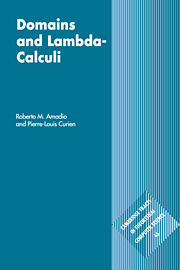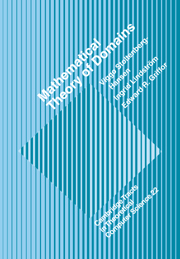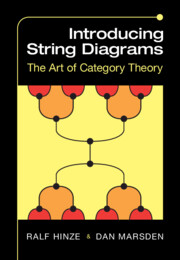Domains and Lambda-Calculi
This book describes the mathematical aspects of the semantics of programming languages. The main goals are to provide formal tools to assess the meaning of programming constructs in both a language-independent and a machine-independent way, and to prove properties about programs, such as whether they terminate, or whether their result is a solution of the problem they are supposed to solve. In order to achieve this the authors first present, in an elementary and unified way, the theory of certain topological spaces that have proved of use in the modelling of various families of typed lambda calculi considered as core programming languages and as meta-languages for denotational semantics. This theory is known as Domain Theory, and was founded as a subject by Scott and Plotkin. One of the main concerns is to establish links between mathematical structures and more syntactic approaches to semantics, often referred to as operational semantics, which is also described. This dual approach has the double advantage of motivating computer scientists to do some mathematics and of interesting mathematicians in unfamiliar application areas from computer science.
- Covers both operational and denotational semantics
- Comprehensive and balanced view
- Class tested in graduate classes
Reviews & endorsements
Review of the hardback: '… extremely useful as a reference for classical results and techniques in general domain theory, very balanced in the treatment of mathematical properties of domains and their operational motivations and applications, and always deep in the choice of topics and in unravelling the connections between them.' Felice Cardone, Science of Computer Programming
Review of the hardback: 'This is an excellent, thorough monograph … a rich and comprehensive source of information, it is very useful as a reference to classical results in domain theory and lambda calculus.' Paula G. Severi, Zentralblatt MATH
Product details
July 1998Hardback
9780521622776
504 pages
235 × 158 × 30 mm
0.954kg
85 b/w illus.
Available
Table of Contents
- Preface
- Notation
- 1. Continuity and computability
- 2. Syntactic theory of λ-calculus
- 3. D∞ models and intersection types
- 4. Interpretation of λ-calculi in CCC's
- 5. CCC's of algebraic dcpo's
- 6. The language PCF
- 7. Domain equations
- 8. Values and computations
- 9. Powerdomains
- 10. Stone duality
- 11. Dependent and second order types
- 12. Stability
- 13. Towards linear logic
- 14. Sequentiality
- 15. Domains and realizability
- 16. Functions and processes
- Appendix 1: summary of recursion theory
- Appendix 2: summary of category theory
- References and bibliography
- Index.




